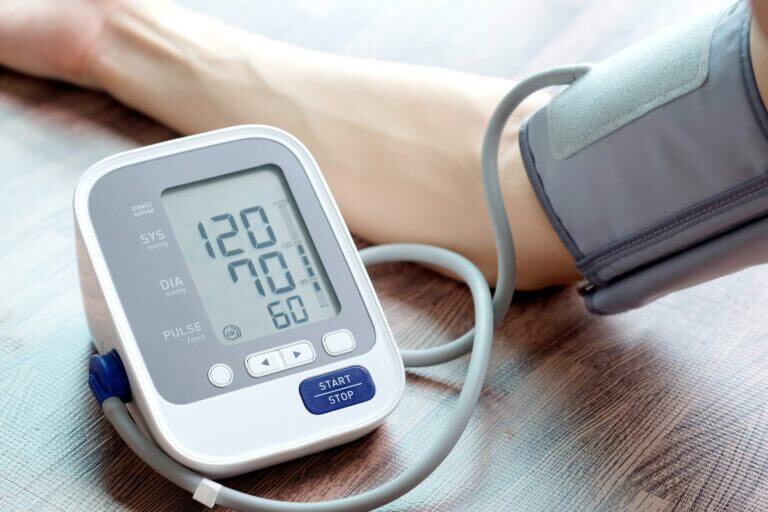Read more about the best blood pressure monitors with AFib detection here. Monitoring blood pressure is crucial, especially for individuals with Atrial Fibrillation (AFib). This guide aims to provide you with a comprehensive review of the best blood pressure monitors for AFib, helping you make an informed decision.
Understanding AFib and its Impact on Blood Pressure
Atrial Fibrillation (AFib) is a medical condition characterized by irregular heartbeats, which can lead to blood clots, stroke, and other cardiovascular complications. AFib can cause fluctuations in blood pressure readings, making it essential to have a reliable and accurate blood pressure monitor.
Monitoring blood pressure and heart rate is of utmost importance when it comes to taking various atrial fibrillation medications. Medications prescribed for atrial fibrillation aim to control and regulate the heart’s rhythm and rate. However, these medications can have a significant impact on blood pressure and heart rate. Regular monitoring allows healthcare professionals to assess the effectiveness of the medication, adjust the dosage if necessary, and identify potential side effects such as hypotension or bradycardia. This monitoring is crucial to ensure patients are receiving the appropriate treatment and to reduce the risk of adverse events associated with medication management in atrial fibrillation.
Effects of AFib on the Cardiovascular System
AFib can lead to various cardiovascular issues, including high blood pressure, heart failure, and even stroke. Therefore, monitoring your blood pressure regularly is crucial for managing AFib effectively.
Factors to Consider When Choosing a Blood Pressure Monitor for AFib
When selecting a blood pressure monitor for AFib, consider the following factors:
Types of Blood Pressure Monitors
There are mainly two types of blood pressure monitors: upper arm and wrist monitors. Upper arm monitors are generally more accurate and are recommended by the American Heart Association.
Key Features
Look for features like data storage, ease of use, and Bluetooth connectivity. These features make it easier to track your blood pressure over time.
Some models of blood pressure cuffs come equipped with an ECG monitor for detecting atrial fibrillation.
Cuff Size and Accuracy
Ensure the cuff size is appropriate for your arm size for accurate measurements. Also, look for monitors that have been validated for accuracy by healthcare providers.
Review of the Best Blood Pressure Monitors with AFib Detection
Based on expert reviews and tests, here are the top-rated blood pressure monitors for AFib:
- Omron Hem 7361T Bluetooth Digital Blood Pressure Monitor with AFib Detection
- Pros: Bluetooth connectivity, detects AFib, accurate readings
- Cons: Higher price range
Auto Amazon Links: No products found.
2. Omron Complete Wireless Upper Arm Blood Pressure Monitor + EKG
- Pros: Combines blood pressure and EKG readings, wireless, reliable
- Cons: Expensive, requires calibration
OMRON 2-in-1 Upper Arm Blood Pressure Monitor & 1-Lead EKG Monitor – Clinically Validated Blood Pressure Arm Cuff & Machine – Use OMRON Connect App
24% Off3. HOMIEE Blood Pressure Monitor with AC Adapter, Large Arm Cuff Blood Pressure Monitor with AFIB Detection
- Pros: Large LCD display, comes with AC adapter, affordable, Suitable for larger arms, detects AFib, accurate readings
- Cons: Not as accurate as some premium models
Auto Amazon Links: No products found.
4. iHealth Track Smart Upper Arm Blood Pressure Monitor with Irregular Heart Rhythm Notification
- Pros: Smart tracking features, easy to use, compact design, popular overall pick for BP cuff on Amazon
- Cons: Requires smartphone app for full features, does not detect AFib, instead has an irregular heart rhythm notification.
iHealth Track Smart Upper Arm Blood Pressure Monitor with Wide Range Cuff That fits Standard to Large Adult Arms, Bluetooth Compatible for iOS & Android Devices
20% OffTips for Accurate Blood Pressure Measurements
For accurate readings, follow these best practices:
- Sit quietly for 5 minutes before taking a measurement.
- Keep your arm at heart level.
- Use a validated blood pressure monitor.
Frequently Asked Questions about Blood Pressure Monitors for AFib
Are blood pressure monitors accurate for individuals with AFib?
Yes, but it’s crucial to choose a monitor that has been validated for accuracy, especially for people with AFib.
Can blood pressure monitors detect atrial fibrillation?
Some advanced monitors can detect irregular heartbeats, which could be indicative of AFib.
What does an irregular heart beat notification mean?
If your blood pressure monitor displays a message indicating an irregular heartbeat, it means that the device has detected an irregularity in your heart rhythm during the blood pressure measurement. This irregularity can be due to various factors, and while it is important to consult with a healthcare professional for an accurate diagnosis, here are a few common causes like arrhythmias: Irregular heart rhythms, known as arrhythmias, may occur due to abnormalities in the electrical signals that control the heartbeat. These can range from harmless to potentially serious conditions, such as atrial fibrillation (AFib) or premature ventricular contractions (PVCs). If you consistently receive irregular heartbeat alerts or have concerns about your heart health, it is crucial to seek guidance from a healthcare provider for a proper diagnosis and appropriate treatment.
Does a blood pressure monitor with AFib detection need to have an ECG monitor?
ECG monitoring is a very useful tool for at home monitoring for atrial fibrillation, but is not a requirement for a blood pressure monitor. Alternatively, separate devices can be used for ECG monitoring such as KardiaMobile 6L.
KardiaMobile 6-Lead Personal EKG Monitor – Six Views of The Heart – Detects AFib and Irregular Arrhythmias – Instant Results in 30 Seconds – Works with Most Smartphones – FSA/HSA Eligible
13% OffConclusion
Monitoring your blood pressure is crucial if you have AFib. Among the products reviewed, the Omron Hem 7361T stands out for its advanced features and AFib detection. However, depending on your needs and budget, the other monitors listed are also excellent choices.
The Best Atrial Fibrillation Book
Your Complete Guide To AFib: The Essential Manual For Every Patient With Atrial Fibrillation

Shop AFib Products on Amazon
KardiaMobile 6-Lead Personal EKG Monitor – Six Views of The Heart – Detects AFib and Irregular Arrhythmias – Instant Results in 30 Seconds – Works with Most Smartphones - FSA/HSA Eligible
13% Off
KardiaMobile 1-Lead Personal EKG Monitor – Record EKGs at Home – Detects AFib and Irregular Arrhythmias – Instant Results in 30 Seconds – Easy to Use – Works with Most Smartphones - FSA/HSA Eligible
$79.00 (as of June 17, 2025 15:15 GMT -06:00 - More infoProduct prices and availability are accurate as of the date/time indicated and are subject to change. Any price and availability information displayed on [relevant Amazon Site(s), as applicable] at the time of purchase will apply to the purchase of this product.)
Apple Watch Series 9 [GPS 41mm] Smartwatch with Storm Blue Aluminum Case with Silver Sport Band M/L. Fitness Tracker, Blood Oxygen & ECG Apps, Always-On Retina Display
(as of June 17, 2025 08:55 GMT -06:00 - More infoProduct prices and availability are accurate as of the date/time indicated and are subject to change. Any price and availability information displayed on [relevant Amazon Site(s), as applicable] at the time of purchase will apply to the purchase of this product.)
Fitbit Sense 2 Advanced Health and Fitness Smartwatch with Tools to Manage Stress and Sleep, ECG App, SpO2, 24/7 Heart Rate and GPS, Shadow Grey/Graphite, One Size (S & L Bands Included)
10% Off
OMRON 2-in-1 Upper Arm Blood Pressure Monitor & 1-Lead EKG Monitor - Clinically Validated Blood Pressure Arm Cuff & Machine - Use OMRON Connect App
24% Off
Samsung Galaxy Watch 6 44mm Bluetooth Smartwatch, Fitness Tracker, Personalized HR Zones, Advanced Sleep Coaching, Heart Monitor, BIA Sensor, Health Wellness Insights, Big Screen, US Version, Graphite
$353.21 (as of June 17, 2025 20:45 GMT -06:00 - More infoProduct prices and availability are accurate as of the date/time indicated and are subject to change. Any price and availability information displayed on [relevant Amazon Site(s), as applicable] at the time of purchase will apply to the purchase of this product.)
Natural Rhythm Triple Calm Magnesium 150 mg - 120 Capsules – Magnesium Complex Compound Supplement with Magnesium Glycinate, Malate, and Taurate. Calming Blend for Promoting Rest and Relaxation.
$20.77 ($0.17 / Count) (as of June 17, 2025 18:04 GMT -06:00 - More infoProduct prices and availability are accurate as of the date/time indicated and are subject to change. Any price and availability information displayed on [relevant Amazon Site(s), as applicable] at the time of purchase will apply to the purchase of this product.)
Pure Encapsulations Magnesium (Glycinate) - Supplement to Support Stress Relief, Sleep, Heart Health, Nerves, Muscles, and Metabolism* - with Magnesium Glycinate - 180 Capsules
$44.60 ($0.25 / Count) (as of June 17, 2025 08:55 GMT -06:00 - More infoProduct prices and availability are accurate as of the date/time indicated and are subject to change. Any price and availability information displayed on [relevant Amazon Site(s), as applicable] at the time of purchase will apply to the purchase of this product.)



























![Apple Watch Series 9 [GPS 41mm] Smartwatch with Storm Blue Aluminum Case with Silver Sport Band M/L. Fitness Tracker, Blood Oxygen & ECG Apps, Always-On Retina Display #1](https://m.media-amazon.com/images/I/311xwtp4mFL._SL100_.jpg)
![Apple Watch Series 9 [GPS 41mm] Smartwatch with Storm Blue Aluminum Case with Silver Sport Band M/L. Fitness Tracker, Blood Oxygen & ECG Apps, Always-On Retina Display #2](https://m.media-amazon.com/images/I/41j+8AaUGsL._SL100_.jpg)
![Apple Watch Series 9 [GPS 41mm] Smartwatch with Storm Blue Aluminum Case with Silver Sport Band M/L. Fitness Tracker, Blood Oxygen & ECG Apps, Always-On Retina Display #3](https://m.media-amazon.com/images/I/41jIyxZitnL._SL100_.jpg)
![Apple Watch Series 9 [GPS 41mm] Smartwatch with Storm Blue Aluminum Case with Silver Sport Band M/L. Fitness Tracker, Blood Oxygen & ECG Apps, Always-On Retina Display #4](https://m.media-amazon.com/images/I/41IpNJERjCL._SL100_.jpg)
![Apple Watch Series 9 [GPS 41mm] Smartwatch with Storm Blue Aluminum Case with Silver Sport Band M/L. Fitness Tracker, Blood Oxygen & ECG Apps, Always-On Retina Display #5](https://m.media-amazon.com/images/I/31o17yhfYpL._SL100_.jpg)































